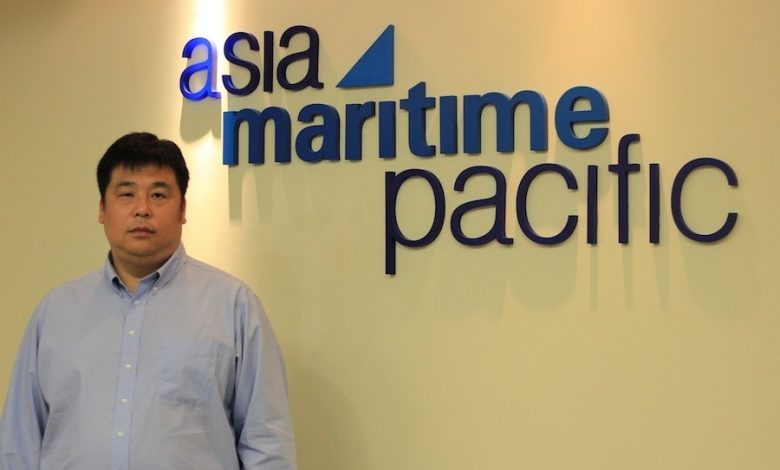Asia Maritime Pacific: Dry bulk consolidation needed amid ‘short, weak’ recovery

The dry bulk sector should consolidate more amid what is set to be only a weak recovery at best, a leading Hong Kong-based shipowner suggests today.
Mark Young is the CEO of Asia Maritime Pacific (AMP), a handysize specialist operating more than 40 ships, with Paul Over, formerly of Pacific Basin fame, among the line’s backers.
“I believe we are now in the recovery stage within this shipping cycle,” Young tells Maritime CEO, however he warns that the upside of this particular cycle is likely to be short and weak.
“I am very cautious when looking at this current recovery,” he stresses.
While consolidation has been ongoing in the container, tanker and project sectors over the past few years, dry bulk has tended to eschew the craze, though it is something Young is keen to champion especially in the smaller dry bulk segments such as handysizes and supramaxes.
“If you look at these sectors,” he says, “you can see the logistical and capital intensive nature of the business, just as if you were looking at a trucking business – you can see how difficult it is to run only a 10-truck company in this modern world.”
However, he concedes consolidation in the dry sector remains a challenge mostly because of human nature.
“A lot of shipping businesses are still proudly family owned, or are run by entrepreneurs who tend to have very strong characters, which makes the discussions around consolidation very difficult because consolidation will require a degree of give and take,” Young observes.
Another measure owners can take to avoid the worst vagaries of the market is to go down the ship pooling route, something AMP is marketing heavily at the moment.
While admitting such a strategy is not necessarily suitable for all owners, pools make the most sense, Young argues, for those who mistimed their dry bulker bets and are now waiting for better times to secure a decent exit strategy.
“In the past, some have invested in the shipping industry in the expectation that they will make their investment returns from asset appreciation,” Young recounts.
Most of those investors had little capacity or interest in building their own platforms to run these ships. Their business model was to charter-out their owned tonnage and divest when the market started to recover. Many of those investors got the timing of the cycle wrong. So today, they find themselves in this current market with very disappointing levels of charter demand, at a time when the market for favourable divestment is clearly not there yet. Many of them hope to hold their tonnage for a little longer without locking in their ships for another few years of chartering contracts.
“They want to keep the ships employed at a level better than the index, but keep the flexibility for divestment opportunities open should the market recover in the near future,” Young explains, adding: “I think these are the kind of owners / investors who should consider the pool structure option, for obvious reasons.”
AMP, which merged with another Hong Kong bulker owner OSL in 2012, formed a private handy pool in 2015, initially focusing on the West Africa log trade to China. The first parties to join the pool were fellow Hong Kong owner Taylor Maritime and Shanghai investment vehicle Maritime Asia Pearl. Following another merger with Texas-based Sono Shipping at the end of last year it has since sought new members to the pool with a view to more transatlantic trades.
